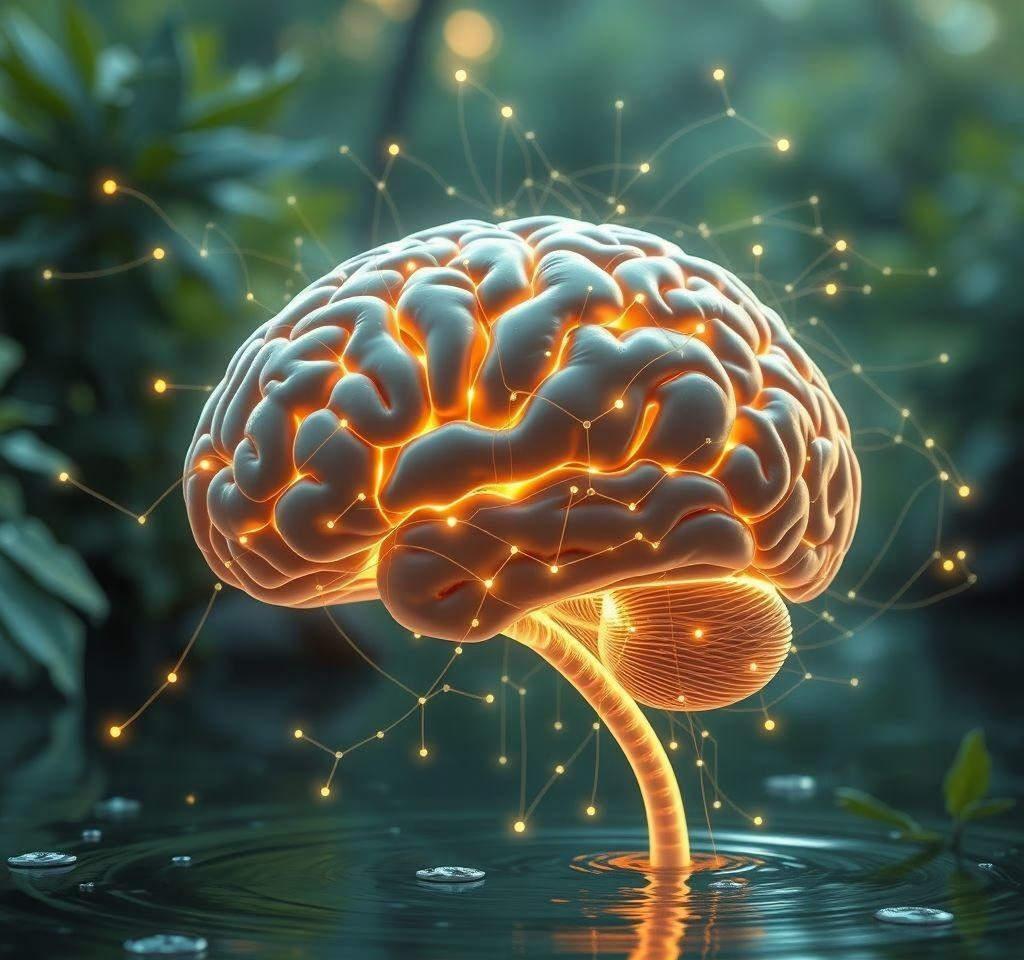AI and Mental Health: Transforming Care Through Innovation
Artificial Intelligence is revolutionizing mental healthcare, offering unprecedented opportunities to improve diagnosis accuracy, personalize treatment plans, and expand access to care. This article explores current innovations in AI-driven mental health solutions, their clinical applications, and the ethical considerations shaping their implementation.
The Emergence of AI in Mental Health
The Emergence of AI in Mental Health:
AI is rapidly transforming mental healthcare. Traditional methods often lack scalability and personalization. AI offers potential solutions. AI algorithms analyze vast datasets, identifying patterns invisible to humans. This leads to more accurate diagnoses and personalized treatment plans.
Predictive modeling is another key area. AI can predict relapse risk and identify individuals at high risk of developing mental health issues. Early interventions can improve outcomes significantly. AI-powered tools assist clinicians with diagnosis, monitoring patient progress, and managing treatment. This frees up clinicians’ time, allowing them to focus on patient interaction.
However, challenges remain. Data privacy and security are paramount. Ensuring algorithms are unbiased and ethical is crucial. Integrating AI into existing healthcare systems requires careful planning and significant investment. Despite these challenges, the potential benefits are immense. AI promises to make mental healthcare more accessible, affordable, and effective for a broader population. Further research and development are essential to fully realize AI’s potential to revolutionize mental health care.
AI-Powered Diagnostic Breakthroughs
The Emergence of AI in Mental Health:
AI is rapidly transforming mental healthcare. Traditional methods often lack scalability and personalization. AI offers potential solutions. AI algorithms analyze vast datasets, identifying patterns invisible to humans. This leads to more accurate diagnoses and personalized treatment plans.
Predictive modeling is another key area. AI can predict relapse risk and identify individuals at high risk of developing mental health issues. Early interventions can improve outcomes significantly. AI-powered tools assist clinicians with diagnosis, monitoring patient progress, and managing treatment. This frees up clinicians’ time, allowing them to focus on patient interaction.
However, challenges remain. Data privacy and security are paramount. Ensuring algorithms are unbiased and ethical is crucial. Integrating AI into existing healthcare systems requires careful planning and significant investment. Despite these challenges, the potential benefits are immense. AI promises to make mental healthcare more accessible, affordable, and effective for a broader population. Further research and development are essential to fully realize AI’s potential to revolutionize mental health care.
Personalized Treatment Platforms
The Emergence of AI in Mental Health:
AI is rapidly transforming mental healthcare. Traditional methods often lack scalability and personalization. AI offers potential solutions. AI algorithms analyze vast datasets, identifying patterns invisible to humans. This leads to more accurate diagnoses and personalized treatment plans.
Predictive modeling is another key area. AI can predict relapse risk and identify individuals at high risk of developing mental health issues. Early interventions can improve outcomes significantly. AI-powered tools assist clinicians with diagnosis, monitoring patient progress, and managing treatment. This frees up clinicians’ time, allowing them to focus on patient interaction.
However, challenges remain. Data privacy and security are paramount. Ensuring algorithms are unbiased and ethical is crucial. Integrating AI into existing healthcare systems requires careful planning and significant investment. Despite these challenges, the potential benefits are immense. AI promises to make mental healthcare more accessible, affordable, and effective for a broader population. Further research and development are essential to fully realize AI’s potential to revolutionize mental health care.
Ethical Imperatives in AI Mental Health
The Emergence of AI in Mental Health:
AI is rapidly transforming mental healthcare. Traditional methods often lack scalability and personalization. AI offers potential solutions. AI algorithms analyze vast datasets, identifying patterns invisible to humans. This leads to more accurate diagnoses and personalized treatment plans.
Predictive modeling is another key area. AI can predict relapse risk and identify individuals at high risk of developing mental health issues. Early interventions can improve outcomes significantly. AI-powered tools assist clinicians with diagnosis, monitoring patient progress, and managing treatment. This frees up clinicians’ time, allowing them to focus on patient interaction.
However, challenges remain. Data privacy and security are paramount. Ensuring algorithms are unbiased and ethical is crucial. Integrating AI into existing healthcare systems requires careful planning and significant investment. Despite these challenges, the potential benefits are immense. AI promises to make mental healthcare more accessible, affordable, and effective for a broader population. Further research and development are essential to fully realize AI’s potential to revolutionize mental health care.
The Future of AI-Driven Care
The Emergence of AI in Mental Health:
AI is rapidly transforming mental healthcare. Traditional methods often lack scalability and personalization. AI offers potential solutions. AI algorithms analyze vast datasets, identifying patterns invisible to humans. This leads to more accurate diagnoses and personalized treatment plans.
Predictive modeling is another key area. AI can predict relapse risk and identify individuals at high risk of developing mental health issues. Early interventions can improve outcomes significantly. AI-powered tools assist clinicians with diagnosis, monitoring patient progress, and managing treatment. This frees up clinicians’ time, allowing them to focus on patient interaction.
However, challenges remain. Data privacy and security are paramount. Ensuring algorithms are unbiased and ethical is crucial. Integrating AI into existing healthcare systems requires careful planning and significant investment. Despite these challenges, the potential benefits are immense. AI promises to make mental healthcare more accessible, affordable, and effective for a broader population. Further research and development are essential to fully realize AI’s potential to revolutionize mental health care.
The Emergence of AI in Mental Health
AI-Powered Diagnostic Breakthroughs:
Machine learning is revolutionizing mental health diagnosis. Algorithms analyze various data points for early detection. These include speech patterns, behavioral data, and biometrics.
Analyzing speech patterns can reveal subtle indicators of depression or anxiety. Changes in tone, pace, and word choice are analyzed. This allows for early intervention. Similarly, behavioral data from wearable sensors or smartphone apps provide insights. Sleep patterns, activity levels, and social interactions are key.
Biometric data such as heart rate variability and skin conductance also offer valuable information. These physiological markers reflect emotional states. Combining these data sources enhances diagnostic accuracy. For example, studies show promising results in detecting depression through voice analysis. Early identification is crucial for effective treatment.
However, challenges exist. Data privacy and algorithmic bias must be addressed. Further research and validation are needed. Despite these, AI holds immense promise for improving mental healthcare.
AI-Powered Diagnostic Breakthroughs
AI-Powered Diagnostic Breakthroughs:
Machine learning is revolutionizing mental health diagnosis. Algorithms analyze various data points for early detection. These include speech patterns, behavioral data, and biometrics.
Analyzing speech patterns can reveal subtle indicators of depression or anxiety. Changes in tone, pace, and word choice are analyzed. This allows for early intervention. Similarly, behavioral data from wearable sensors or smartphone apps provide insights. Sleep patterns, activity levels, and social interactions are key.
Biometric data such as heart rate variability and skin conductance also offer valuable information. These physiological markers reflect emotional states. Combining these data sources enhances diagnostic accuracy. For example, studies show promising results in detecting depression through voice analysis. Early identification is crucial for effective treatment.
However, challenges exist. Data privacy and algorithmic bias must be addressed. Further research and validation are needed. Despite these, AI holds immense promise for improving mental healthcare.
Personalized Treatment Platforms
AI-Powered Diagnostic Breakthroughs:
Machine learning is revolutionizing mental health diagnosis. Algorithms analyze various data points for early detection. These include speech patterns, behavioral data, and biometrics.
Analyzing speech patterns can reveal subtle indicators of depression or anxiety. Changes in tone, pace, and word choice are analyzed. This allows for early intervention. Similarly, behavioral data from wearable sensors or smartphone apps provide insights. Sleep patterns, activity levels, and social interactions are key.
Biometric data such as heart rate variability and skin conductance also offer valuable information. These physiological markers reflect emotional states. Combining these data sources enhances diagnostic accuracy. For example, studies show promising results in detecting depression through voice analysis. Early identification is crucial for effective treatment.
However, challenges exist. Data privacy and algorithmic bias must be addressed. Further research and validation are needed. Despite these, AI holds immense promise for improving mental healthcare.
Ethical Imperatives in AI Mental Health
AI-Powered Diagnostic Breakthroughs:
Machine learning is revolutionizing mental health diagnosis. Algorithms analyze various data points for early detection. These include speech patterns, behavioral data, and biometrics.
Analyzing speech patterns can reveal subtle indicators of depression or anxiety. Changes in tone, pace, and word choice are analyzed. This allows for early intervention. Similarly, behavioral data from wearable sensors or smartphone apps provide insights. Sleep patterns, activity levels, and social interactions are key.
Biometric data such as heart rate variability and skin conductance also offer valuable information. These physiological markers reflect emotional states. Combining these data sources enhances diagnostic accuracy. For example, studies show promising results in detecting depression through voice analysis. Early identification is crucial for effective treatment.
However, challenges exist. Data privacy and algorithmic bias must be addressed. Further research and validation are needed. Despite these, AI holds immense promise for improving mental healthcare.
The Future of AI-Driven Care
AI-Powered Diagnostic Breakthroughs:
Machine learning is revolutionizing mental health diagnosis. Algorithms analyze various data points for early detection. These include speech patterns, behavioral data, and biometrics.
Analyzing speech patterns can reveal subtle indicators of depression or anxiety. Changes in tone, pace, and word choice are analyzed. This allows for early intervention. Similarly, behavioral data from wearable sensors or smartphone apps provide insights. Sleep patterns, activity levels, and social interactions are key.
Biometric data such as heart rate variability and skin conductance also offer valuable information. These physiological markers reflect emotional states. Combining these data sources enhances diagnostic accuracy. For example, studies show promising results in detecting depression through voice analysis. Early identification is crucial for effective treatment.
However, challenges exist. Data privacy and algorithmic bias must be addressed. Further research and validation are needed. Despite these, AI holds immense promise for improving mental healthcare.
The Emergence of AI in Mental Health
Personalized Treatment Platforms:
AI is personalizing mental healthcare. AI-driven therapy bots offer accessible, scalable solutions. These systems use natural language processing to engage users. They adapt treatment plans based on user responses.
Dynamic treatment plans adjust in real-time. This ensures the therapy remains relevant and effective. The AI monitors progress and modifies strategies as needed. This personalized approach improves engagement and outcomes. Integration with telehealth expands access to care.
Case studies demonstrate the effectiveness of these systems. For instance, studies show improved symptoms in users engaging with AI-powered platforms. These platforms are particularly beneficial for individuals with limited access to traditional therapy. The convenience and affordability are significant advantages.
However, challenges remain. Data privacy and the therapeutic alliance require careful consideration. Ensuring ethical development and responsible use are crucial. More research is necessary to evaluate long-term effectiveness. Despite these, the potential of AI-driven platforms is enormous. They are poised to significantly enhance the accessibility and efficacy of mental healthcare.
AI-Powered Diagnostic Breakthroughs
Personalized Treatment Platforms:
AI is personalizing mental healthcare. AI-driven therapy bots offer accessible, scalable solutions. These systems use natural language processing to engage users. They adapt treatment plans based on user responses.
Dynamic treatment plans adjust in real-time. This ensures the therapy remains relevant and effective. The AI monitors progress and modifies strategies as needed. This personalized approach improves engagement and outcomes. Integration with telehealth expands access to care.
Case studies demonstrate the effectiveness of these systems. For instance, studies show improved symptoms in users engaging with AI-powered platforms. These platforms are particularly beneficial for individuals with limited access to traditional therapy. The convenience and affordability are significant advantages.
However, challenges remain. Data privacy and the therapeutic alliance require careful consideration. Ensuring ethical development and responsible use are crucial. More research is necessary to evaluate long-term effectiveness. Despite these, the potential of AI-driven platforms is enormous. They are poised to significantly enhance the accessibility and efficacy of mental healthcare.
Personalized Treatment Platforms
Personalized Treatment Platforms:
AI is personalizing mental healthcare. AI-driven therapy bots offer accessible, scalable solutions. These systems use natural language processing to engage users. They adapt treatment plans based on user responses.
Dynamic treatment plans adjust in real-time. This ensures the therapy remains relevant and effective. The AI monitors progress and modifies strategies as needed. This personalized approach improves engagement and outcomes. Integration with telehealth expands access to care.
Case studies demonstrate the effectiveness of these systems. For instance, studies show improved symptoms in users engaging with AI-powered platforms. These platforms are particularly beneficial for individuals with limited access to traditional therapy. The convenience and affordability are significant advantages.
However, challenges remain. Data privacy and the therapeutic alliance require careful consideration. Ensuring ethical development and responsible use are crucial. More research is necessary to evaluate long-term effectiveness. Despite these, the potential of AI-driven platforms is enormous. They are poised to significantly enhance the accessibility and efficacy of mental healthcare.
Ethical Imperatives in AI Mental Health
Personalized Treatment Platforms:
AI is personalizing mental healthcare. AI-driven therapy bots offer accessible, scalable solutions. These systems use natural language processing to engage users. They adapt treatment plans based on user responses.
Dynamic treatment plans adjust in real-time. This ensures the therapy remains relevant and effective. The AI monitors progress and modifies strategies as needed. This personalized approach improves engagement and outcomes. Integration with telehealth expands access to care.
Case studies demonstrate the effectiveness of these systems. For instance, studies show improved symptoms in users engaging with AI-powered platforms. These platforms are particularly beneficial for individuals with limited access to traditional therapy. The convenience and affordability are significant advantages.
However, challenges remain. Data privacy and the therapeutic alliance require careful consideration. Ensuring ethical development and responsible use are crucial. More research is necessary to evaluate long-term effectiveness. Despite these, the potential of AI-driven platforms is enormous. They are poised to significantly enhance the accessibility and efficacy of mental healthcare.
The Future of AI-Driven Care
Personalized Treatment Platforms:
AI is personalizing mental healthcare. AI-driven therapy bots offer accessible, scalable solutions. These systems use natural language processing to engage users. They adapt treatment plans based on user responses.
Dynamic treatment plans adjust in real-time. This ensures the therapy remains relevant and effective. The AI monitors progress and modifies strategies as needed. This personalized approach improves engagement and outcomes. Integration with telehealth expands access to care.
Case studies demonstrate the effectiveness of these systems. For instance, studies show improved symptoms in users engaging with AI-powered platforms. These platforms are particularly beneficial for individuals with limited access to traditional therapy. The convenience and affordability are significant advantages.
However, challenges remain. Data privacy and the therapeutic alliance require careful consideration. Ensuring ethical development and responsible use are crucial. More research is necessary to evaluate long-term effectiveness. Despite these, the potential of AI-driven platforms is enormous. They are poised to significantly enhance the accessibility and efficacy of mental healthcare.
The Emergence of AI in Mental Health
Ethical Imperatives in AI Mental Health:
The integration of AI in mental healthcare necessitates careful consideration of ethical implications. Protecting patient privacy is paramount. Data security measures must be robust. Strict adherence to data protection regulations is crucial.
Algorithmic bias is another significant concern. AI systems trained on biased data perpetuate inequalities. Mitigation strategies must be implemented. These include diverse datasets and rigorous testing.
Ethical frameworks guide the responsible development of AI therapies. Transparency and accountability are essential. Clinicians need clear guidelines for using AI tools. Patient autonomy and informed consent are vital. Regulations, similar to those governing medical devices, should govern AI mental health software. These regulations should ensure safety and efficacy.
Patient consent models must be carefully designed. Patients need to understand how data is used. They need control over their information. Clear, concise consent forms are crucial. These need to address all aspects of data usage. Open communication between patients and clinicians is essential for building trust and ensuring ethical practice.
AI-Powered Diagnostic Breakthroughs
Ethical Imperatives in AI Mental Health:
The integration of AI in mental healthcare necessitates careful consideration of ethical implications. Protecting patient privacy is paramount. Data security measures must be robust. Strict adherence to data protection regulations is crucial.
Algorithmic bias is another significant concern. AI systems trained on biased data perpetuate inequalities. Mitigation strategies must be implemented. These include diverse datasets and rigorous testing.
Ethical frameworks guide the responsible development of AI therapies. Transparency and accountability are essential. Clinicians need clear guidelines for using AI tools. Patient autonomy and informed consent are vital. Regulations, similar to those governing medical devices, should govern AI mental health software. These regulations should ensure safety and efficacy.
Patient consent models must be carefully designed. Patients need to understand how data is used. They need control over their information. Clear, concise consent forms are crucial. These need to address all aspects of data usage. Open communication between patients and clinicians is essential for building trust and ensuring ethical practice.
Personalized Treatment Platforms
Ethical Imperatives in AI Mental Health:
The integration of AI in mental healthcare necessitates careful consideration of ethical implications. Protecting patient privacy is paramount. Data security measures must be robust. Strict adherence to data protection regulations is crucial.
Algorithmic bias is another significant concern. AI systems trained on biased data perpetuate inequalities. Mitigation strategies must be implemented. These include diverse datasets and rigorous testing.
Ethical frameworks guide the responsible development of AI therapies. Transparency and accountability are essential. Clinicians need clear guidelines for using AI tools. Patient autonomy and informed consent are vital. Regulations, similar to those governing medical devices, should govern AI mental health software. These regulations should ensure safety and efficacy.
Patient consent models must be carefully designed. Patients need to understand how data is used. They need control over their information. Clear, concise consent forms are crucial. These need to address all aspects of data usage. Open communication between patients and clinicians is essential for building trust and ensuring ethical practice.
Ethical Imperatives in AI Mental Health
Ethical Imperatives in AI Mental Health:
The integration of AI in mental healthcare necessitates careful consideration of ethical implications. Protecting patient privacy is paramount. Data security measures must be robust. Strict adherence to data protection regulations is crucial.
Algorithmic bias is another significant concern. AI systems trained on biased data perpetuate inequalities. Mitigation strategies must be implemented. These include diverse datasets and rigorous testing.
Ethical frameworks guide the responsible development of AI therapies. Transparency and accountability are essential. Clinicians need clear guidelines for using AI tools. Patient autonomy and informed consent are vital. Regulations, similar to those governing medical devices, should govern AI mental health software. These regulations should ensure safety and efficacy.
Patient consent models must be carefully designed. Patients need to understand how data is used. They need control over their information. Clear, concise consent forms are crucial. These need to address all aspects of data usage. Open communication between patients and clinicians is essential for building trust and ensuring ethical practice.
The Future of AI-Driven Care
Ethical Imperatives in AI Mental Health:
The integration of AI in mental healthcare necessitates careful consideration of ethical implications. Protecting patient privacy is paramount. Data security measures must be robust. Strict adherence to data protection regulations is crucial.
Algorithmic bias is another significant concern. AI systems trained on biased data perpetuate inequalities. Mitigation strategies must be implemented. These include diverse datasets and rigorous testing.
Ethical frameworks guide the responsible development of AI therapies. Transparency and accountability are essential. Clinicians need clear guidelines for using AI tools. Patient autonomy and informed consent are vital. Regulations, similar to those governing medical devices, should govern AI mental health software. These regulations should ensure safety and efficacy.
Patient consent models must be carefully designed. Patients need to understand how data is used. They need control over their information. Clear, concise consent forms are crucial. These need to address all aspects of data usage. Open communication between patients and clinicians is essential for building trust and ensuring ethical practice.
The Emergence of AI in Mental Health
The Future of AI-Driven Care:
AI is poised to revolutionize mental healthcare, moving beyond current innovations. Advancements in wearable biosensors allow real-time monitoring of mental states. This facilitates early intervention and personalized treatment. Data from these sensors, combined with other health data, can provide a comprehensive picture of an individual’s well-being.
Neuroimaging applications, combined with AI analysis, enhance diagnostic accuracy. AI can detect subtle changes in brain activity, potentially identifying conditions earlier than traditional methods. This allows for more timely and effective interventions.
AI also addresses global mental health equity. AI-powered tools can overcome barriers to access. These tools can be deployed in areas with limited mental health professionals. AI can translate languages, and personalize treatment plans for diverse populations. This creates a more equitable mental healthcare system for everyone.
However, challenges remain. Data privacy and ethical considerations must be addressed. Ensuring algorithmic fairness is vital to prevent the exacerbation of existing inequalities. Continued research and development are critical. This will lead to the full realization of AI’s potential to improve mental health worldwide.
AI-Powered Diagnostic Breakthroughs
The Future of AI-Driven Care:
AI is poised to revolutionize mental healthcare, moving beyond current innovations. Advancements in wearable biosensors allow real-time monitoring of mental states. This facilitates early intervention and personalized treatment. Data from these sensors, combined with other health data, can provide a comprehensive picture of an individual’s well-being.
Neuroimaging applications, combined with AI analysis, enhance diagnostic accuracy. AI can detect subtle changes in brain activity, potentially identifying conditions earlier than traditional methods. This allows for more timely and effective interventions.
AI also addresses global mental health equity. AI-powered tools can overcome barriers to access. These tools can be deployed in areas with limited mental health professionals. AI can translate languages, and personalize treatment plans for diverse populations. This creates a more equitable mental healthcare system for everyone.
However, challenges remain. Data privacy and ethical considerations must be addressed. Ensuring algorithmic fairness is vital to prevent the exacerbation of existing inequalities. Continued research and development are critical. This will lead to the full realization of AI’s potential to improve mental health worldwide.
Personalized Treatment Platforms
The Future of AI-Driven Care:
AI is poised to revolutionize mental healthcare, moving beyond current innovations. Advancements in wearable biosensors allow real-time monitoring of mental states. This facilitates early intervention and personalized treatment. Data from these sensors, combined with other health data, can provide a comprehensive picture of an individual’s well-being.
Neuroimaging applications, combined with AI analysis, enhance diagnostic accuracy. AI can detect subtle changes in brain activity, potentially identifying conditions earlier than traditional methods. This allows for more timely and effective interventions.
AI also addresses global mental health equity. AI-powered tools can overcome barriers to access. These tools can be deployed in areas with limited mental health professionals. AI can translate languages, and personalize treatment plans for diverse populations. This creates a more equitable mental healthcare system for everyone.
However, challenges remain. Data privacy and ethical considerations must be addressed. Ensuring algorithmic fairness is vital to prevent the exacerbation of existing inequalities. Continued research and development are critical. This will lead to the full realization of AI’s potential to improve mental health worldwide.
Ethical Imperatives in AI Mental Health
The Future of AI-Driven Care:
AI is poised to revolutionize mental healthcare, moving beyond current innovations. Advancements in wearable biosensors allow real-time monitoring of mental states. This facilitates early intervention and personalized treatment. Data from these sensors, combined with other health data, can provide a comprehensive picture of an individual’s well-being.
Neuroimaging applications, combined with AI analysis, enhance diagnostic accuracy. AI can detect subtle changes in brain activity, potentially identifying conditions earlier than traditional methods. This allows for more timely and effective interventions.
AI also addresses global mental health equity. AI-powered tools can overcome barriers to access. These tools can be deployed in areas with limited mental health professionals. AI can translate languages, and personalize treatment plans for diverse populations. This creates a more equitable mental healthcare system for everyone.
However, challenges remain. Data privacy and ethical considerations must be addressed. Ensuring algorithmic fairness is vital to prevent the exacerbation of existing inequalities. Continued research and development are critical. This will lead to the full realization of AI’s potential to improve mental health worldwide.
The Future of AI-Driven Care
The Future of AI-Driven Care:
AI is poised to revolutionize mental healthcare, moving beyond current innovations. Advancements in wearable biosensors allow real-time monitoring of mental states. This facilitates early intervention and personalized treatment. Data from these sensors, combined with other health data, can provide a comprehensive picture of an individual’s well-being.
Neuroimaging applications, combined with AI analysis, enhance diagnostic accuracy. AI can detect subtle changes in brain activity, potentially identifying conditions earlier than traditional methods. This allows for more timely and effective interventions.
AI also addresses global mental health equity. AI-powered tools can overcome barriers to access. These tools can be deployed in areas with limited mental health professionals. AI can translate languages, and personalize treatment plans for diverse populations. This creates a more equitable mental healthcare system for everyone.
However, challenges remain. Data privacy and ethical considerations must be addressed. Ensuring algorithmic fairness is vital to prevent the exacerbation of existing inequalities. Continued research and development are critical. This will lead to the full realization of AI’s potential to improve mental health worldwide.
Final Words
While AI holds immense potential to transform mental healthcare, its success depends on addressing ethical challenges like data privacy and algorithmic transparency. By prioritizing human-AI collaboration, we can harness these technologies to create more equitable, responsive, and effective mental health systems for all populations.




